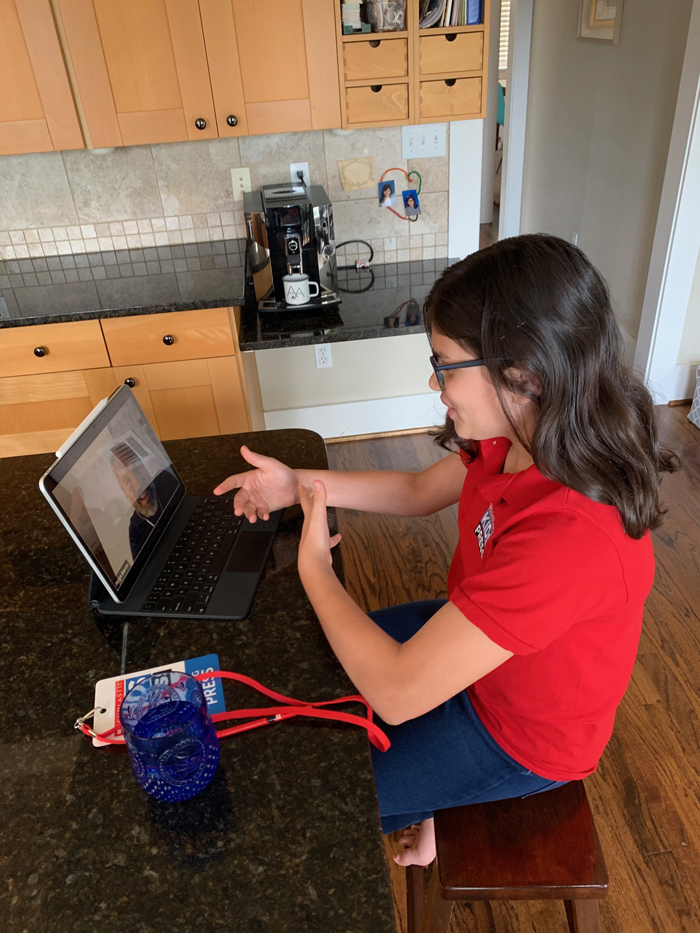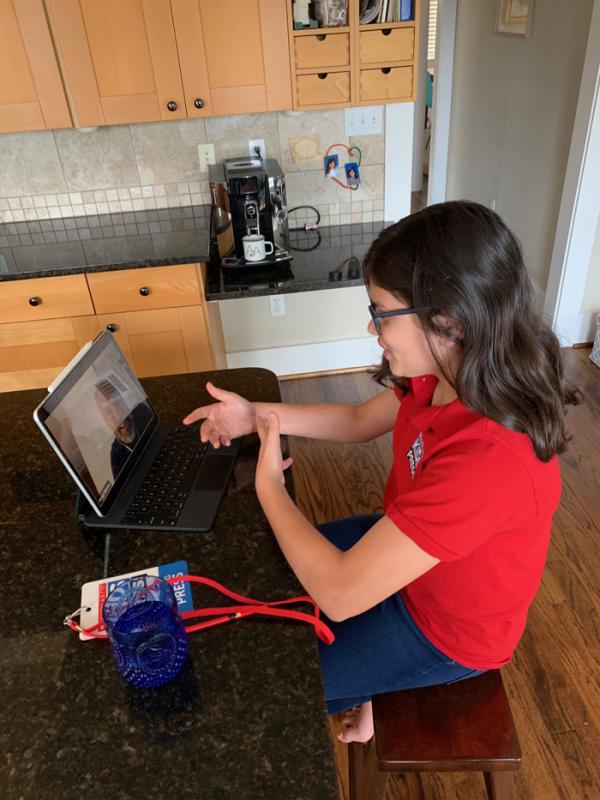KID REPORTERS’ NOTEBOOK
A Champion of Immigrants’ Rights


Zoe interviews immigration lawyer Jorge Baron at her home in Washington State.
Jorge Baron, an immigration lawyer, has dedicated his life to advocating for immigrants in Washington State. He and his family immigrated to the United States from Colombia in 1986.
Baron was only 13 when he arrived here. He did not speak English. “I came to the U.S. on a student visa with my mom and two brothers,” he told me in a recent video interview.
As a teen, Baron was bullied and treated poorly because he was different. “One thing that helped me keep going,” he said, “was that there were a lot of people who were very kind to me.”
Baron, who went on to graduate from Yale Law School, is now the one helping others. He serves as executive director of the Northwest Immigrant Rights Project (NWIRP). The nonprofit organization provides legal services for low-income immigrants and refugees. The group also educates immigrants about their rights.
“Knowing what some of our clients are going through and finding someone to help them is why I do what I do,” Baron said. Each year, NWIRP serves more than 10,000 individuals from more than 100 countries.
KEEPING IMMIGRANTS SAFE
Helping people in detention centers is a large part of Baron’s job. He fights to keep immigrants from being deported.
The Northwest Detention Center in Washington, which detains immigrants, is one of the largest such places in the U.S. More than 1,500 people are currently housed there. Like many detention centers around the country, this one is run by a private company, not the government. Baron and other advocates say that conditions are crowded, unsanitary, and unsafe, especially now during the coronavirus pandemic.
According to Immigration and Customs Enforcement (ICE), a U.S. law-enforcement agency, the average stay in a detention center is between 85 and 90 days. But detainments can last from a week to up to four years.
Recently, there have been several reported cases of immigrants, including children, being detained by ICE officers and kept in extremely harsh conditions, violating their human rights. These include individuals who have fled dangerous situations in other countries.
Many immigrants work in low-paying jobs and cannot afford legal representation. This can lead to immigrants ending up in detention centers even if they have lived in the U.S. for most of their lives and have children or even grandchildren who live here.
ADAPTING DURING THE PANDEMIC
Because of the pandemic, NWIRP has had to adapt its practices. Instead of immigrants coming to the organization’s headquarters, Baron and other lawyers use technology to communicate with the immigrants and provide legal help. The approach has presented some problems because not all immigrants have access to the internet.
Despite the challenges, Baron enjoys his work on behalf of immigrants in need. “Helping people stay with their families and be protected from being sent to a place where they might face danger,” he said, “is what I enjoy about immigration law.”
